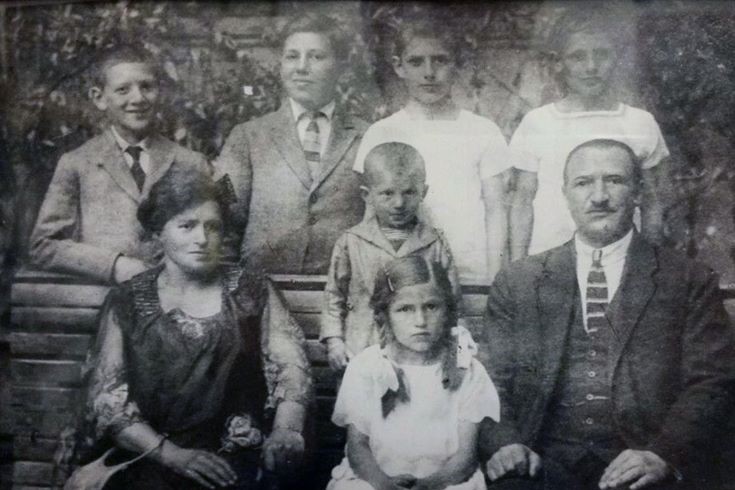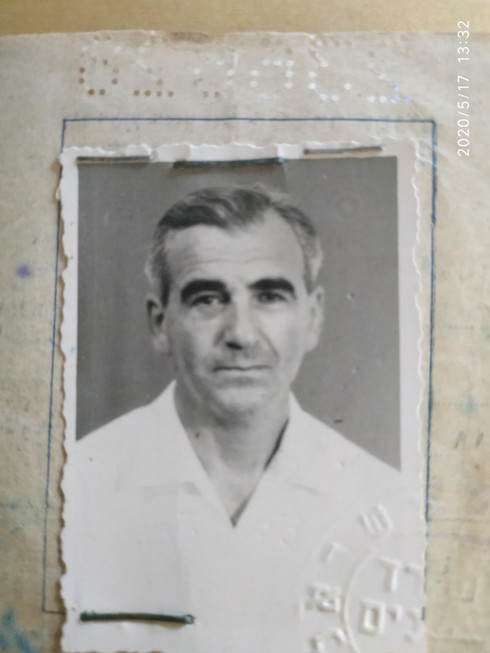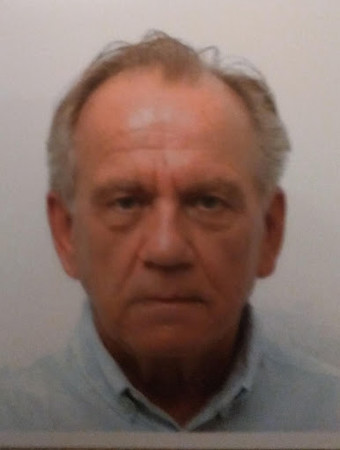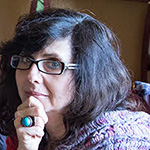Part 3: Courageous Rescues, Difficult Reunions: Heartbreaking Decisions by Parents during the Holocaust
June 16, 2021
By Joanna Beata Michlic
Editor’s note: This blog comes from a lecture delivered at the International Seminar, Holocaust Education in the 21st Century: International Perspective, in recognition of the 25th of Yad Layeled, Ghetto Fighters' House Museum, May 2, 2021. It is serialized in four parts.
Alexander Bickels and the Jurdyga Family
 In some cases, searches for missing child survivors have been continuing until the present by members of the second generation, cousins and nephews, who could only cling to fragmentary evidence and hope against hope that the lost child survivors in their families could be identified and found. Ori Bickels, born in a small green Polish town Tuchola in 1953, emigrated to Israel with his parents in 1957. Ori's father, Józef Bickels was born into a highly acculturated and educated Polish-Jewish family and had two siblings Wiktor and Samuel.
In some cases, searches for missing child survivors have been continuing until the present by members of the second generation, cousins and nephews, who could only cling to fragmentary evidence and hope against hope that the lost child survivors in their families could be identified and found. Ori Bickels, born in a small green Polish town Tuchola in 1953, emigrated to Israel with his parents in 1957. Ori's father, Józef Bickels was born into a highly acculturated and educated Polish-Jewish family and had two siblings Wiktor and Samuel.
At the outbreak of the Second World War on Sept. 1, 1939, Józef Bickels, who before the war was trained as a veterinary doctor, was drafted into the Polish army at the rank of lieutenant. He fought in the Defensive Campaign of September 1939, and soon after was captured by the Germans and spent almost the entire war in a German POW camp, Oflag IIE in New Brandenburg in northeast Germany.
While Józef was incarcerated in the POW Camp, his brother Wiktor experienced harsh living conditions in the Lviv ghetto where he was confined with his young family: his wife Roma Bickels, née Ratz whom he married May 7, 1939, in Lviv, and their toddler son Alexander, already born in the Lviv ghetto sometimes in the autumn of 1942.
On July 4, 1943, Wiktor Bickels wrote to his brother Józef a desperate letter that he knew was also his last will. Wiktor wrote the letter in the shelter where he and his family were hiding for months. The shelter was located in the house of the Polish couple of Jan Jurdyga and his wife Henryka Jurdyga, née Gwizdalska and their young three boys, the selfless rescuers of the Bickels family. However, by July 1943, the constructed shelter underneath the entrance hall to the rescuers' house at 359 Pieracki Street on the outskirts of Lviv, was not safe any longer. Neighbors of Jan and Henryka Jurdyga began to inquire about the origins of the toddler boy whom Jurdyga family kept "above the surface" in the house because of Alexander's young age, in contrast to his parents who had to stay in a restricted sitting position throughout daytime in the shelter. They could only leave the shelter to stretch their legs at nighttime.
One month after the liquidation of the Lviv ghetto, in June 1943, the Bickels couple asked their rescuers to arrange a new shelter for their son Alexander. They believed that Alexander could survive the Holocaust since the toddler boy was not circumcised and had blue eyes and blond hair. The Jurdyga couple arranged a new shelter for Alexander: an unnamed Ukrainian peasant woman from a nearby village who regularly came to their house in Lviv to sell milk and butter, took Alexander with her one day. Soon after Alexander's parents left Jurdyga's house hoping against hope to escape to the East. But, at the same time, they were fully aware that their chances of survival were virtually nil.
In his eloquent and poignant letter, the last will, Wiktor informs his brother Józef about the scope of their family's destruction, the death of their parents and other relatives, and expresses a wish that if he and his wife would not survive that Józef would trace Alexander and would bring him up as his own son.
 "My dearest Józieńko, 4 July 1943.
"My dearest Józieńko, 4 July 1943.
I am writing my last words to you here. No one survived from our family, everybody has been killed. People who will give you this letter, will explain to you everything. Mr. and Mrs. Jurdygowie, they have a heart of gold. They have been sheltering us till today. They were also the couple who were looking after our boy, but we were forced to give him away into the hands of strangers. In general, please remember to help THEM (Capitalized in the original letter) and be grateful to them throughout your life, do not forget about this. If you locate the boy, please bring him up as if he was your own child. He is our only descendant. He is not circumcised, and he has blue eyes. Mrs. Jurdyga could recognize him. These are my wishes. Now I need to say farewell to you. May Almighty God have mercy upon you and the child. >
I hug you and kiss you with all my might, all my might. Yours, forever, loving brother Wiktor. Please remember about the dearest and loved people."
 Józef Bickels received this letter only a few years before his death in 1996. Between July 4, 1943 and 1989, the letter was in the possession of the Jurdyga family, who in the aftermath of the Second World War, like many other Polish families from the Eastern Territories (Kresy), were repatriated to the Western territories in Poland. Once repatriated, the Jurdyga couple searched in vain for Wiktor and Józef Bickels through international and national Polish Red Cross. In the aftermath of 1989 when diplomatic relations between Poland and Israel were reestablished, the eldest son Edward Jurdyga felt compelled to establish contact with the Department of the Righteous Amongst Gentiles in Yad Vashem to honor his rescuer-parents who by then were deceased, and to search for Józef Bickels in Israel. This is how Wiktor's letter eventually reached his addressee, Józef.
Józef Bickels received this letter only a few years before his death in 1996. Between July 4, 1943 and 1989, the letter was in the possession of the Jurdyga family, who in the aftermath of the Second World War, like many other Polish families from the Eastern Territories (Kresy), were repatriated to the Western territories in Poland. Once repatriated, the Jurdyga couple searched in vain for Wiktor and Józef Bickels through international and national Polish Red Cross. In the aftermath of 1989 when diplomatic relations between Poland and Israel were reestablished, the eldest son Edward Jurdyga felt compelled to establish contact with the Department of the Righteous Amongst Gentiles in Yad Vashem to honor his rescuer-parents who by then were deceased, and to search for Józef Bickels in Israel. This is how Wiktor's letter eventually reached his addressee, Józef.
Ori Bickels still hopes that someone might know the whereabouts of Alexander who today would be 79 years old if he is alive, and might still live in Ukraine, not knowing about his Jewish roots and tragic childhood.
 Joanna Beata Michlic is a social and cultural historian, and founder, and former director of HBI’s Legacy Project: The Project on Families, Children, and the Holocaust at Brandeis University. She is an Honorary Senior Research Associate at the University College London’s (UCL) Centre for the Study of Collective Violence, the Holocaust and Genocide, UCL Institute for Advanced Studies, and Research Fellow at Weiss-Livnat International Centre for Holocaust Research and Education, University of Haifa, June 2019 – May 2022. She is also a Research Associate at HBI, and a co-editor in Chief of Genealogy Journal. Her research focuses on social and cultural history of Poland and East European Jews, the Holocaust and its memory in Europe, East European Jewish childhood, rescue and rescuers of Jews in East-Central Europe, and antisemitism, racism, and nationalism in Europe. She is a recipient of many prestigious academic awards and fellowships, most recently Gerda Henkel Fellowship, 2017-21.
Joanna Beata Michlic is a social and cultural historian, and founder, and former director of HBI’s Legacy Project: The Project on Families, Children, and the Holocaust at Brandeis University. She is an Honorary Senior Research Associate at the University College London’s (UCL) Centre for the Study of Collective Violence, the Holocaust and Genocide, UCL Institute for Advanced Studies, and Research Fellow at Weiss-Livnat International Centre for Holocaust Research and Education, University of Haifa, June 2019 – May 2022. She is also a Research Associate at HBI, and a co-editor in Chief of Genealogy Journal. Her research focuses on social and cultural history of Poland and East European Jews, the Holocaust and its memory in Europe, East European Jewish childhood, rescue and rescuers of Jews in East-Central Europe, and antisemitism, racism, and nationalism in Europe. She is a recipient of many prestigious academic awards and fellowships, most recently Gerda Henkel Fellowship, 2017-21.
Sources
- Wiktor Bickels' letter of 4 July 1943 to his brother Józef Bickels, (Private collection of Ori Bickels) Translation of the letter by the author of this essay, Joanna Beata Michlic.